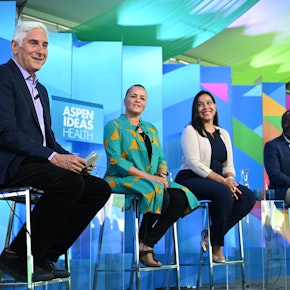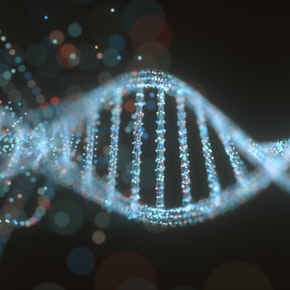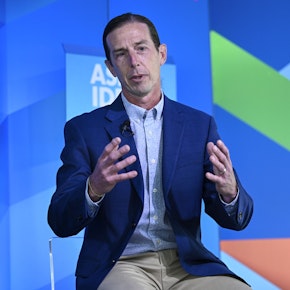Explore
Search results

Thanks to the genius of biochemists such as Jennifer Doudna, who’s credited with the co-discovery of CRISPR, our biggest scientific advances in the near future may easily come by way of the genome-editing technology. CRISPR enables scientists to change or remove genes quickly, with a precision only dreamed of just a few years ago. But just how far are we willing to go to e...

When Damon Tweedy begins medical school, he envisions a bright future where his segregated, working-class background will become largely irrelevant. Instead, he finds that he has joined a new world where race is front and center. In his New York Times bestselling debut effort, Tweedy – now a psychiatrist at Duke University – explores the challenges confronting black doctor...

No doctor awakens in the morning determined to discriminate against patients of color, yet their daily clinical decisions too often have that result. Implicit bias—unconscious assumptions and stereotypes—often cause the harm. The failure to ask the right questions, listen closely and reserve judgment can sabotage communication in any patient/physician encounter, but it wor...

Chronic obstructive pulmonary disease (COPD), is the third leading killer in the US, yet it rarely commands the attention paid to #1 heart disease and #2 cancer. As both advocate and patient, Grace Anne Dorney-Koppel is fighting to change that. After being given less than five years to live in 2001, Grace Anne embarked on an ambitious rehab program, and now helps fund pulm...

The ability to endure is the essential trait in every extreme athletic endeavor. Hundred-mile races, Himalayan Mountain expeditions, and cross-continental treks all require humans to push harder and achieve more than we ever thought possible. How important is the delicate interplay between mind and body in the struggle to keep pushing despite an agonizing will to stop? Wha...

Physicist Brian Greene explains the Higgs boson particle, also known as the "God Particle," and why you should care about it. This energetic and delightful talk will make you wish your high school physics teacher taught like this. Greene says the feat of finding such a particle is akin to "trying to hear a tiny, delicate whisper over the massive thundering, deafening din o...

Jennifer Doudna and her Berkeley lab collaborators are not alone in their quest to understand nature. As scientists with profound curiosity, leaders of labs across the globe have found themselves in an intense race to determine how to manipulate our genetic makeup, designing new technologies that can alter the course of disease or even design a human child. But with the de...

We know DNA is a master key that unlocks medical and forensic secrets, but genetic testing is also impacting urgent social issues around race in America. DNA-based techniques are being used in a variety of ways, including to grapple with the unfinished business of slavery: to foster reconciliation, to establish ties with African ancestral homelands, to rethink and sometime...

The sequencing of the human genome – a complete map of the body’s three million base pairs – opened a window into disease processes, led to new diagnostic tools and personalized therapies, and heralded an age of medical discovery. A brief documentary produced by Retro Report describes the historic race to unlock the genomic code, the birth of precision medicine, the use of...

Although essential to ensure the safety and effectiveness of new drugs and devices, clinical trials tend to be costly and slow to reach conclusions, and there is often an imbalance in the race, gender, and age of participants. Efforts to reinvigorate the research ecosystem aim to broaden access to trials, increase their diversity, and make it more efficient to capture pro...

In less-developed countries, parasitic roundworms can colonize the gut and cause significant intestinal problems. But autoimmune diseases, the devastating package of disorders in which the body’s immune system attacks healthy cells, are rare in those places. By contrast, in the United States, where roundworm infections are no longer part of the ecosystem, as many as 50 mil...

As the planet warms, wildfires will proliferate in forests, grasslands, and even urban areas — threatening flora, fauna, and finances around the globe. The good news is that we aren’t helpless, even in the face of all-consuming conflagrations. Leading fire scientists share the best strategies we have for managing — and ultimately taming — the flames.

In the face of a spiraling opioid epidemic, alternatives for addressing chronic pain are essential. Taking a placebo may turn out to be just the prescription we need. Neuroscientists have discovered that a pill with no pharmaceutically active ingredients can reduce responses in the brain’s pain centers, and trigger the release of endorphins, the body’s own chemical pain re...

If we are lucky enough to reach age 85, we face a 25 percent chance of dementia, and the odds worsen with time. Some 50 million people worldwide were living with dementia in 2017, and that number is predicted to double every 20 years so that by 2050, the afflicted population will reach 132 million. The most common cause is Alzheimer’s disease, an invariably progressive con...

For years, dogs have been getting the short end of the stick — so to speak — when it comes to research. Dolphins and primates get lots of attention. Now, it’s the dog’s turn. Two experts, Alexandra Horowitz and Brian Hare, are part of a growing number of scientists researching canine cognition. They study what a dog knows, understands, and believes. Sure, it’s nice to know...

Williams, Jordan, James, Brady. They’re among a growing class of the superstar athletes delivering career-best performances well past what's been considered peak age for their sports. As this phenomenon becomes more common, it begs the questions how and why now? How are experience and maturity winning out over inevitable, natural physical decline? Athletes in the 30s and 4...

